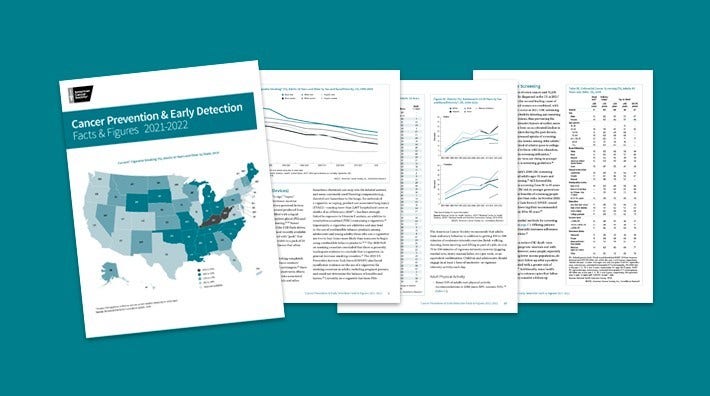Surveillance, Prevention, & Health Services Research
The Surveillance, Prevention, & Health Services Research (SPHeRe) Department is an intramural research program of the American Cancer Society (ACS). Our staff includes world-renowned epidemiologists and health scientists, and we're among the most comprehensive cancer surveillance, health services, and disparities research groups worldwide.
SPHeRe Teams & Work
Epidemiologists and health economists in the SPHeRe department publish nearly 100 peer-reviewed journal articles a year in addition to the ACS Cancer Facts & Figures reports.
This team's goal is to examine the economic burden of cancer and the influence of health policies and systems on health equity for cancer prevention, early detection, treatment and supportive services, and palliative care.
Our Goals and Objectives
The goal of the Surveillance, Prevention, & Health Services Research (SPHeRe) department is to conduct interdisciplinary, impactful research and disseminate information on cancer occurrence, prevention, early detection, treatment, survivorship, and economic burden to inform delivery of cancer care and cancer prevention and control nationally and globally in support of the ACS mission “to save lives, celebrate lives, and lead the fight for a world without cancer.”
Specific objectives in support of this goal are to:
Publish high quality educational publications, including the ACS Cancer Facts & Figures reports.
Monitor progress and identify emerging patterns and inequalities across the cancer control continuum—prevention, screening, occurrence, treatment, survivorship, and mortality.
Estimate the contribution of individual, social, institutional, and health system determinants of health on cancer disparities.
Assess the application and effects of health policies, cancer control programs, and guidelines on: a) access to, and receipt of, cancer care, and b) the economic burden and outcomes of cancer control efforts from prevention through mortality.
Create scientific evidence to support and promote ACS and American Cancer Society Cancer Action Network (ACS CAN) campaigns, advocacy efforts, and national roundtables, including their actions to improve access to cancer care and influence federal, state, and local tobacco-control measures.
Advance research in cancer prevention, surveillance, health services, and disparities across the cancer care continuum via scientific publications, conference participation, staff development, and interdisciplinary collaborations with both internal and external partners.
The SHES department is led by Ahmedin Jemal, DVM, PhD, and staffed by more than 20 scientists.
Glossary for Nonscientists
Featured Term:
Cancer Surveillance Research
Ongoing and systematic collection, analysis, interpretation, and reporting of cancer data about the new cancer cases, extent of disease, use of screening tests, treatment, survival, and death.
Its goal is to use data to guide public health policy and action, such as the distribution of health care resources.








